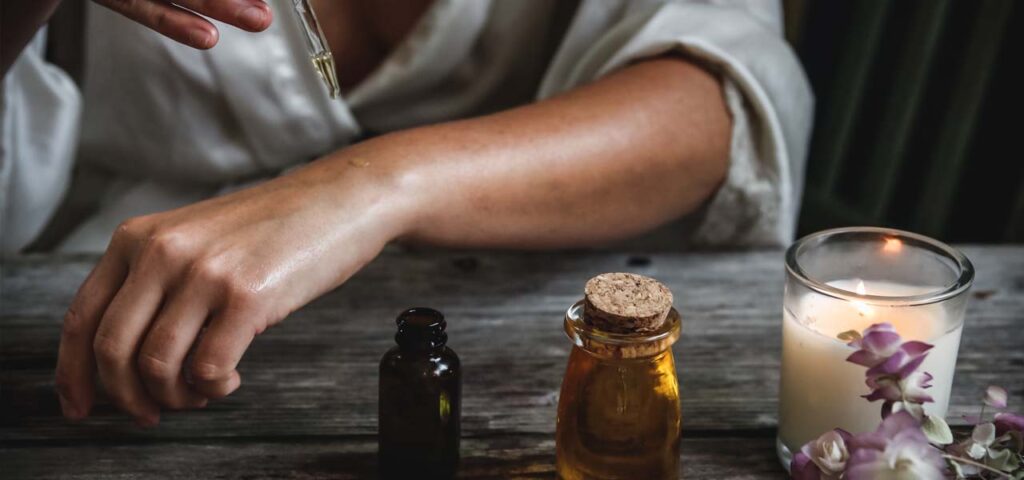Introduction
Thick and well-defined eyebrows have become a prominent beauty trend in recent years. Many people desire fuller eyebrows to enhance their facial features. One popular remedy that has gained attention for its potential to promote eyebrow growth is castor oil. In this article, we will explore the benefits and limitations of using castor oil for achieving thicker eyebrows.

What is Castor Oil?
Extracted from the seeds of the castor plant (Ricinus communis), castor oil is a natural vegetable oil. It has been used for various medicinal and cosmetic purposes for centuries. The oil contains a high concentration of ricinoleic acid, which is believed to be the primary component responsible for its therapeutic properties.
Understanding Eyebrow Growth
Before delving into the benefits of castor oil, it is essential to understand the natural process of eyebrow growth. Eyebrows, like all hair on our body, go through a growth cycle that consists of three stages: anagen (growth), catagen (transition), and telogen (resting). Each hair strand follows its unique cycle, which can influence the overall appearance of our eyebrows.
The Nutrients in Castor Oil
Castor oil is a rich source of essential nutrients, including vitamins, proteins, and fatty acids. Some of the key nutrients found in castor oil that may contribute to healthier hair growth include vitamin E, omega-6 fatty acids, and proteins.
How Castor Oil Promotes Eyebrow Growth
The nutrients in castor oil are believed to nourish hair follicles and promote blood circulation in the eyebrow area. This increased blood flow can potentially stimulate the hair follicles, leading to improved hair growth and thickness.

Application of Castor Oil on Eyebrows
Applying castor oil to eyebrows is a simple process. One can use a clean mascara wand or a cotton swab to apply the oil gently along the eyebrows. It is best to do this before bedtime, allowing the oil to work its magic overnight.
The Importance of Consistency
Achieving the best result for Eyebrow growth, use Castor oil with Consistency. Results may not be immediate, and regular application over several weeks or months may be required to notice any significant changes.
Precautions and Allergies
While castor oil is generally safe for most people, some individuals may experience allergic reactions or skin irritation. It is crucial to perform a patch test before using castor oil extensively on the eyebrows.
Other Methods for Thicker Eyebrows
Aside from castor oil, several other natural remedies and commercial products claim to promote eyebrow growth. Some of these methods include using coconut oil, olive oil, and specific serums designed for eyebrow enhancement.
Debunking Myths about Castor Oil and Eyebrows
There are numerous myths surrounding the use of castor oil for thicker eyebrows. We will address some of the common misconceptions and provide evidence-based insights.
Castor Oil for Overall Hair Health
Beyond eyebrows, castor oil is also believed to have positive effects on scalp health and overall hair growth. We will explore its potential benefits for the hair in general.
Frequently Asked Questions (FAQs)
Is castor oil suitable for all skin types?
Can castor oil help with eyebrow regrowth after over-plucking?
How long does it take to see results with castor oil?
Are there any side effects of using castor oil on eyebrows?
Can castor oil be used on eyelashes as well?
Conclusion
In conclusion, castor oil has gained popularity as a potential remedy for achieving thicker eyebrows. While its nutrient-rich composition and purported benefits are promising, individual results may vary. Patience and consistency are essential when using castor oil for eyebrow growth. It is essential to consult a dermatologist if you experience any adverse reactions.
If you are interested in trying castor oil for thicker eyebrows, perform a patch test first to ensure there are no allergic reactions. Additionally, consider complementing castor oil treatment with a healthy lifestyle and a balanced diet to promote overall hair health.
Remember, what works for one person may not work for another, so be open to exploring other methods if needed. Before adopting any new beauty regimen, it’s always best to consult with a healthcare professional or a qualified dermatologist.